What is Volume Electron Microscopy and Should You Use it?
…electron microscopy workflow. (Image credit: Thomas Warwick.) Sample Preparation (1-2 Weeks) Sample prep for vEM has a lot in common with other EM techniques. You fix your sample, coat it…
Join Us
Sign up for our feature-packed newsletter today to ensure you get the latest expert help and advice to level up your lab work.
Search below to delve into the Bitesize Bio archive. Here, you’ll find over two decades of the best articles, live events, podcasts, and resources, created by real experts and passionate mentors, to help you improve as a bioscientist. Whether you’re looking to learn something new or dig deep into a topic, you’ll find trustworthy, human-crafted content that’s ready to inspire and guide you.

…electron microscopy workflow. (Image credit: Thomas Warwick.) Sample Preparation (1-2 Weeks) Sample prep for vEM has a lot in common with other EM techniques. You fix your sample, coat it…

…cells? Your facility will be able to advise you on sample prep and provide tips for sample-specific instrument setup. The type of experiment you will perform. Will it be immunophenotyping…

…is poor (very low DNA concentration, contaminating RNA, gDNA, protein, salt, phenol, ethanol, etc), discard it and make a new one. Don’t be tempted to continue with the low-quality prep…

…Library Prep Kits for IlluminaTM systems that add helper adaptors directly onto the RNA before cDNA is generated later on in the workflow. Fresh or Frozen Tissue Versus FFPE Samples Total…
Of all the sample prep steps necessary for next generation sequencing, DNA size selection may have the greatest impact on quality of results. After all, ineffective sizing can waste sequencing…

…to read and understand someone else’s scripts. One benefit of Perl’s staying power is that the BioPerl library is more mature and larger than the BioPython library. Chances are that…
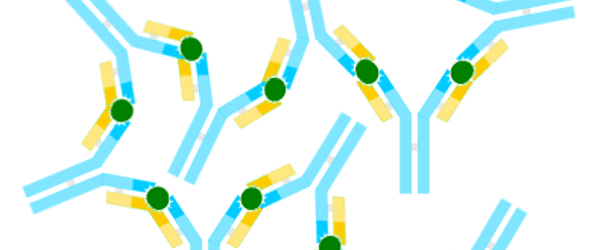
…a specific antigen-binding site, resulting in a large repertoire: an antibody library. Selection of Antibodies Now that you have a library containing thousands of phages, each carrying a different antibody,…
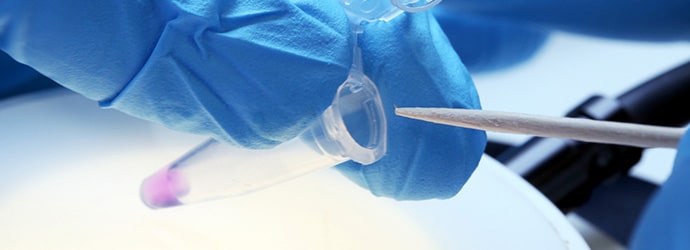
…nucleic acid crosslinking caused by formalin fixation without causing further DNA damage. Beyond that, extracted DNA requires controlled shearing into manageable fragments for NGS library preparation. DNA Extraction and Shearing…
…an example, this approach enables parallel sequencing of different samples through the labeling of each library with a distinguishing barcode, or index (e.g. Illumina indexing). The procedure is straightforward: during…
Construction of high-quality sequencing libraries is pivotal to successful NGS, and DNA quality is one of the most critical aspects of library preparation. As this Nature Methods paper illustrates, DNA…

…5 ?g of mRNA to create a library of hundreds of cDNA tags. In comparison, LongSAGE published in 2002 in Nature Biotech, could use 20 ?g of mRNA to create…
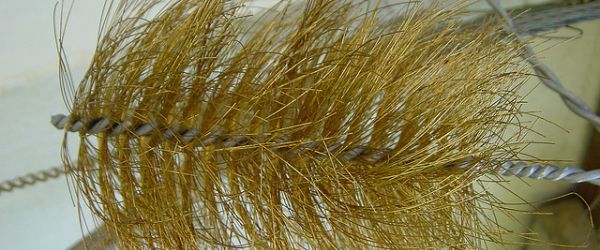
…to harvest sufficient HBECs. The prep – Decontamination As soon as you remove brushes from the patient, incubate the brushes immediately in sterile medium. You can store the brushes (with long…

…prep for our ligation and controls, the number of colonies formed will be dependent on the amount covalently-closed DNA we have in each reaction (i.e. how successful the ligation has…
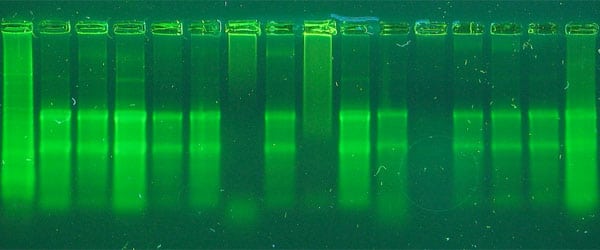
…a scale accurate to the weight you need or you may see variation from prep to prep as well as other problems with purity and clogging columns when too much…
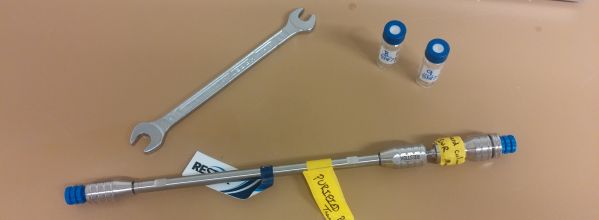
…to remove any particulate matter that might clog the instrument. Just be sure that your filter is compatible with the solvent you are using! 2. Sample Prep Will Make or…

…the case of myosin, compete for calcium binding sites. But magnesium has a longer dwelling period at the binding site, which can cause your prep to lose some movement. I…

…solid phase, which can be a silica gel in the case of mini-prep columns, but usually beads that can be covalently linked to antibodies or other ligand molecules. “Solid phase”…

…the helper plasmid contains transposase, which assists in transpositioning the GOI into the bacmid, resulting in a recombinant bacmid. Blue-white screening is employed at this stage to identify recombinant constructs. Recombinant bacmid DNA is then isolated from the transformed E. coli using PureLinkTM HiPure Mini-prep kit. The size of the recombinant bacmid is large…

…it to set. Mix a small volume of your RNA prep with a loading dye. Add the RNA prep and loading dye into a well. Add your running buffer and…
…removing the pain from nucleic acid prep procedures, with innovations like pioneering the first zero retention micro-elution spin column. But their latest offering – ZymoPURE™ MidiPrep and MaxiPrep kits –…
…of plasmid prep: You don’t need to plasmid prep your clones for Sanger sequencing. After picking clones for culture, simply swirl your cocktail and stick into a PCR master mix…
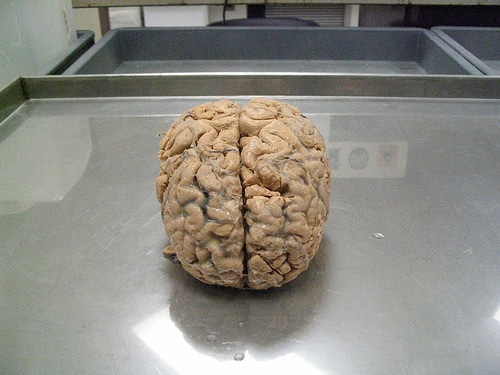
…interest or make a cDNA library and probe it for a specific sequence or activity. There are several advantages to using cDNA as opposed to genomic DNA for doing this:…
You have spent days, if not weeks, at the bench setting up the treatment and control samples for that crucial experiment. You submitted your cDNA library for sequencing and after…
…samples. Many NGS library preparation protocols use agarose gels for size selection of genomic DNA, RNA or final libraries. Gel electrophoresis is a simple size selection technique and is very effective when…

…can also be a significant source of stress. In Search of a Library Assistant When I was a graduate student, I would diligently search PubMed for the newest articles published…

…record them into a reference library for reuse. DO: validate how long the reference library controls can be reused. The rule of thumb is one month, but you should validate….

…curves obtained from patient samples are then compared to the reference library. Library preparation is typically carried out by cloning or mutating the genes of interest in a plasmid. New methods…

…write—just remember to have the EndNote library you are using open in the background. With this feature, there’s no need for you to switch between programs or documents. This is…

…you need to add the package to the ’library’ of functions that R knows how to use. You do this with the function library(): library(ggplot2) (In these articles, commands to…

…check out their FAQ for Information Professionals [4] or review their technical bulletins. [5-7] The US National Library of Medicine has a great webinar with downloadable slides if you want…

…and data analysis and visualization. Biopython is an open-source library made for computation in bioinformatics. PyMed is another library that can help researchers make consistent and readable batch search queries…

…functional). a restriction site has been added or removed. the vector prep is dirty and may contain contaminates that inhibit the digestion reaction. Reperform the prep (e.g. miniprep) if you…

…and pipettes, and floating in the air, waiting for the chance to creep into your prep, shred your RNA into nucleotides, and ruin a day’s work. Well, not really. It’s…

…when making a STED sample there are a few aspects of sample prep that you need to consider: Choose the Correct Coverglass Many microscope lenses are optimised for a certain…
…go to your logbook to see more details as necessary. You can also use this to keep tabs on which culture/prep you have used and which is therefore no longer…
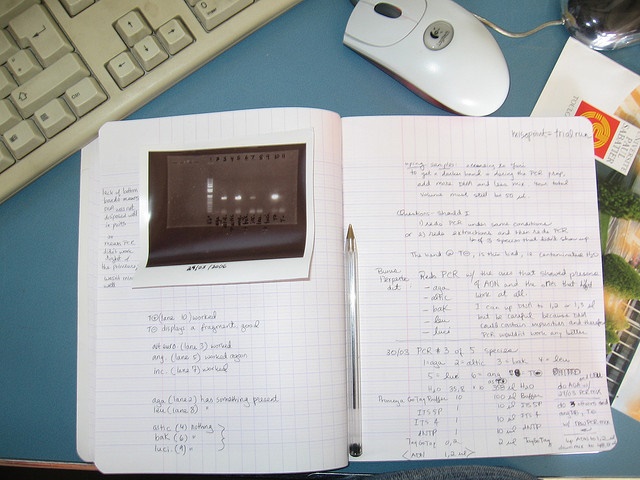
…and Digital PCR (dPCR). Which one is right for your application? Both methods have good quantification, sensitivity and specificity for most applications. They are compatible with the same sample prep…

…DIY prep for a while. Why Use a DIY Method for DNA Isolation? Unlike with kits, there are no propriety reagents in a DIY protocol. You know what exactly is…

…with Virkon, and for solid media, autoclaving seems to be the only good option. The microwave media prep method is certainly interesting. Weiss and Galande’s results seem to be pretty…

…protein at the end of the prep. Maltose binding protein (MBP), glutathione-s-transferase (GST), or histidine tags are the most useful for this purpose. The only other prerequisite for this method…

Before you can perform histology on your tissue samples – you need to prep them. This means you must fix them, embed them, and section them into thin slices for…

The eBook with top tips from our Researcher community.